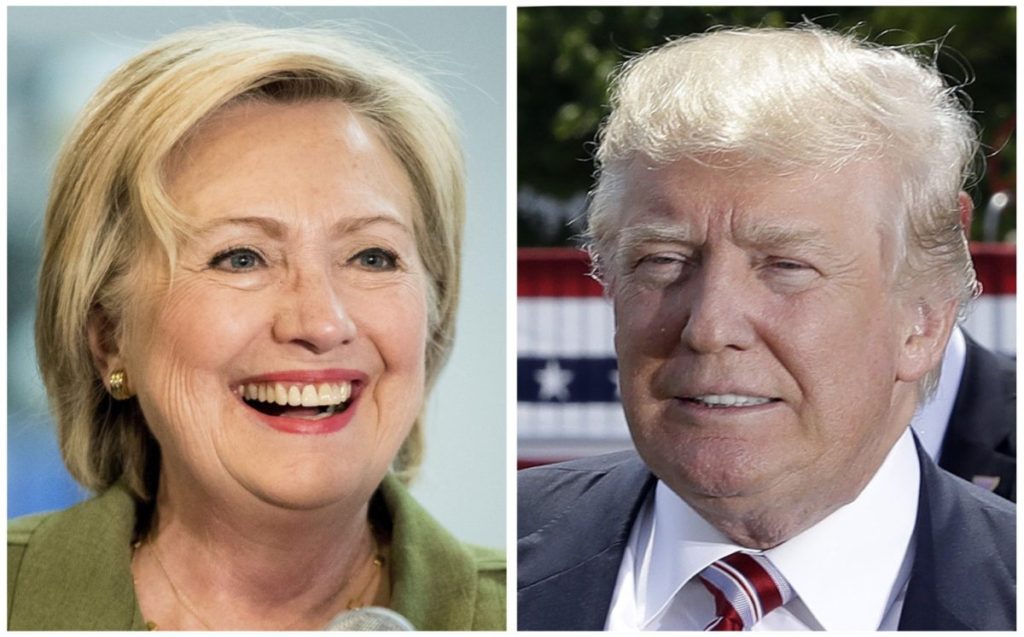Washington Post columnist Robert Samuelson (10/23/16) has an idea for how to cast your vote:
To bring this nasty and bizarre campaign to a meaningful conclusion, what this country needs is an outburst of ticket splitting. Republicans should vote for Hillary Clinton, and Democrats should back Republican House and Senate candidates. This will strike most people as counterintuitive, if not foolish, but there are three good reasons for doing so.
I’m going to go with “foolish”—based on the reasons Samuelson offers.
First, he thinks it will “make a statement about the outcome”: that “neither party deserves complete victory.” As evidence, he notes a recent poll in which “only 40 percent of respondents viewed Clinton positively; a mere 29 percent felt that way about Donald Trump.” So, on the basis of this, we’re supposed to vote for congressional Republicans, who have a 20 percent approval rating? OK.
Then it will “avoid misinterpretation”—you should vote for a GOP Congress to show that Clinton does not have “a compelling agenda,” and vote for Clinton to show that the Republicans’ control of Congress does “not signal the popularity of their political philosophy, whatever it is.” Hard to see how that could be misinterpreted.
Then Samuelson’s real point: “Divided government, driven by ticket splitting, might actually produce better government.” How so?
Clinton, House Speaker Paul D. Ryan (Wis.) and Senate Majority Leader Mitch McConnell (Ky.) are all “transactional politicians”—they want to get things done—as well as fierce partisans.
Reflect on the fact that Robert Samuelson is paid to write about politics for a living. Then consider that perhaps the most famous statement ever made by McConnell is, “The single most important thing we want to achieve is for President Obama to be a one-term president.” He didn’t get that thing done, but it wasn’t for lack of trying.
Meanwhile, Paul Ryan also has something he wants to get done: He wants to cut the budget of the entire federal government—aside from Social Security, Medicare, Medicaid and the military—to zero. (He doesn’t say that that’s his intention, but that’s the clear implication of his budget numbers, which are frequently praised by corporate media for their wonkery.)
But these aren’t the things Samuelson has in mind when he pines for a “revitalized centrist politics.” He gives his wish list:
There’s a huge backlog of undone legislative business: immigration, corporate tax changes, military spending, climate change, Social Security and Medicare, to name a few.
I’m glad, truly I am, that Samuelson (7/9/97) is no longer writing in regards to climate change, “It’s politically incorrect to question whether this is a serious problem that serious people ought to take seriously.” But if he’s not in denial about climate change, he’s in denial about denialism: Ryan says “I don’t know” whether humans are warming the Earth’s climate, “and I don’t think science does either.” He does know whether the federal government can do anything about climate change, though: “I would argue the federal government, with all its tax and regulatory schemes, can’t.”
As for McConnell, he says that “for everybody who thinks [the planet is] warming, I can find somebody who thinks it isn’t.” His own position? “I’m not a scientist, I am interested in protecting Kentucky’s economy, I’m interested in having low-cost electricity.”
These are the people that Samuelson suggests will do something about the climate catastrophe if you make sure they don’t lose control of Congress.
Finally, a historical note: Setting up his argument, Samuelson notes, “At its peak in 1972, ticket splitters represented 30 percent of voters.” Hmm—why do you suppose that 1972 was the peak of ticket-splitting? While the parties on the presidential level had definitively switched sides on civil rights by 1972, with Democrat George McGovern an ardent advocate and Republican Richard Nixon pursuing his “Southern strategy,” congressional representatives throughout the South were still overwhelmingly Democratic—mostly the same people who had been fighting civil rights for years.
It made a great deal of sense for people who missed segregation to split their vote between Nixon and their local Democrat. What makes much less sense is Samuelson presenting that era as the good old days.
Jim Naureckas is the editor of FAIR.org. You can follow him on Twitter: @JNaureckas.

